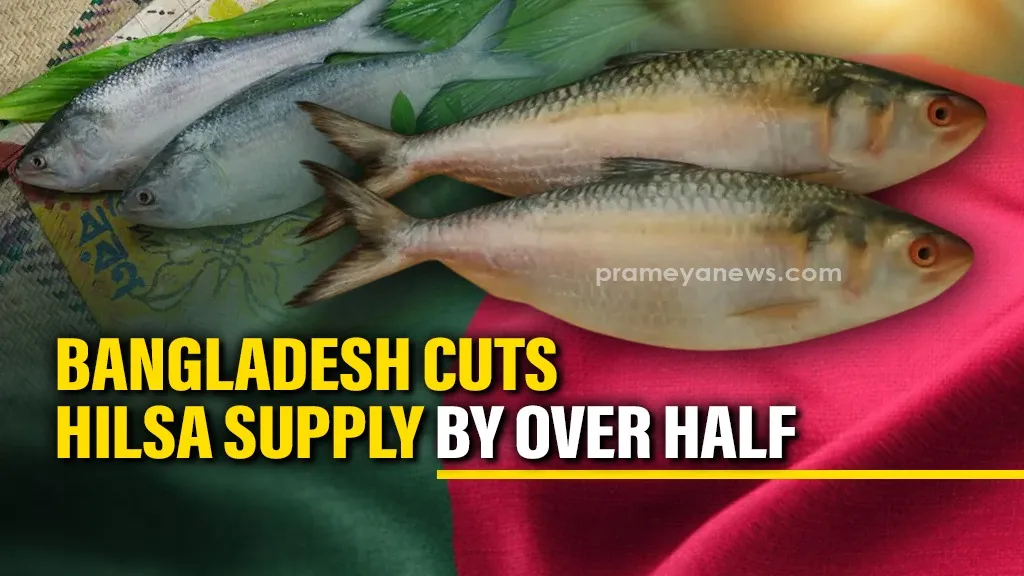

In a move that blends festive goodwill with subtle diplomatic signaling, Bangladesh has approved the export of its prized hilsa fish to India ahead of the Durga Puja season, but with a drastically reduced quota. The government in Dhaka has sanctioned the export of just 1,200 tonnes of the fish, a significant drop of more than 50% from the 3,950 tonnes allocated last year. While the decision is being officially framed as a gesture of "enduring friendship," the sharp reduction is being widely interpreted against the backdrop of recent political tensions between the two nations, adding a complex new chapter to the long history of "hilsa diplomacy."
For West Bengal, the arrival of hilsa (or ilish) from Bangladesh is an integral part of the Durga Puja celebrations, with demand for the sought-after delicacy peaking during the festive season. The cross-border trade, however, has often been a barometer of the political climate between New Delhi and Dhaka. The most notable example of this was the complete ban on hilsa exports between 2012 and 2018, a period of strained relations linked to disputes over the Teesta water-sharing agreement.
This year's reduced quota comes at another sensitive juncture, following the exit of former Prime Minister Sheikh Hasina last August. While the Bangladesh High Commissioner to India celebrated the decision on social media, the sharp cutback from previous years speaks volumes, turning a traditional act of cultural exchange into a carefully measured diplomatic statement.
The reduced supply is accompanied by stringent new regulations. The Bangladeshi Ministry of Commerce has set a minimum export price of ₹1,520.73 ($12.50) per kilogram and has imposed a tight deadline for exporters to apply for permits. The government has also explicitly barred the transfer of these permits and reserves the right to halt shipments at any time, indicating a high level of control over the process.
This limited supply is certain to have an impact on the bustling fish markets of Kolkata, where the Padma hilsa from Bangladesh is the most expensive and prized variety. While cheaper alternatives from southern Bengal and Myanmar are available, the scarcity of the top-tier import will likely lead to soaring prices, leaving many to pay a premium for their festive feast. The decision, therefore, is not just a matter of diplomacy but one that will be felt directly at the dinner tables of countless families during their most important cultural celebration.
· Quota Slashed: Bangladesh has approved the export of only 1,200 tonnes of hilsa fish to India for Durga Puja, a more than 50% reduction from the 3,950 tonnes allowed last year.
· Diplomatic Overtones: The move is officially described as a gesture of friendship but is being viewed in the context of recent political tensions between the two countries, continuing a long tradition of "hilsa diplomacy."
· Festive Staple: Hilsa is the most sought-after fish in West Bengal during the Durga Puja festival, and the reduced supply is expected to lead to higher prices in the market.
· Strict New Rules: The export comes with a fixed minimum price and tight regulations, giving the Bangladeshi government significant control over the trade.